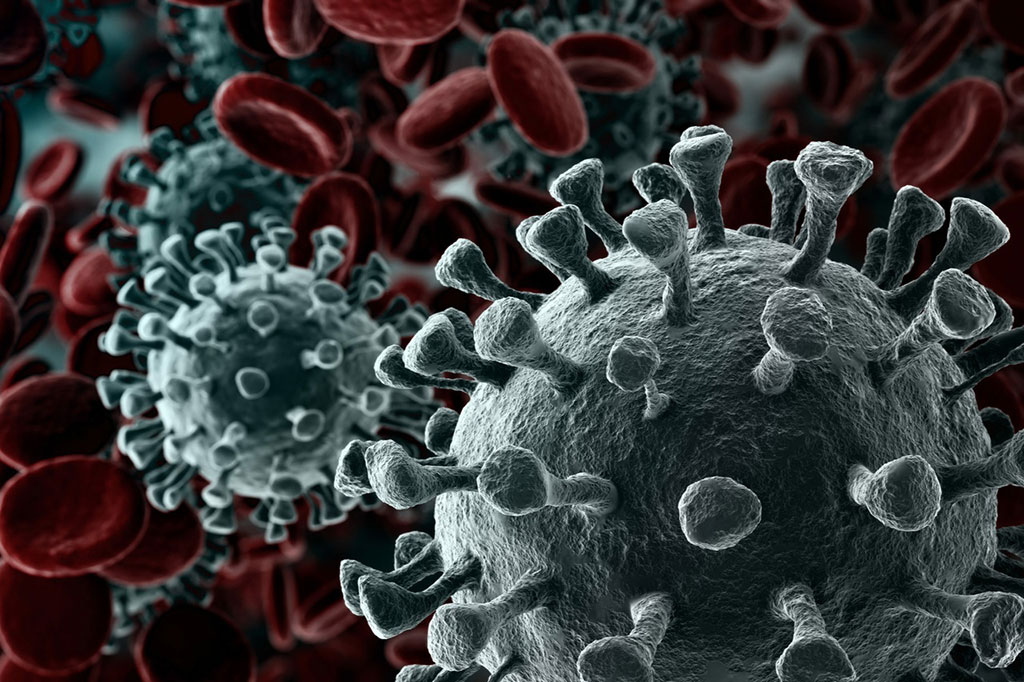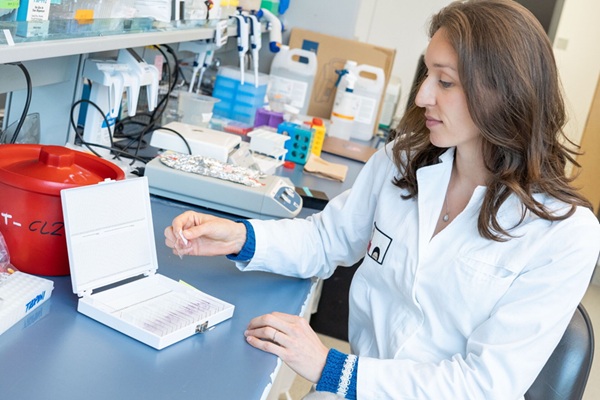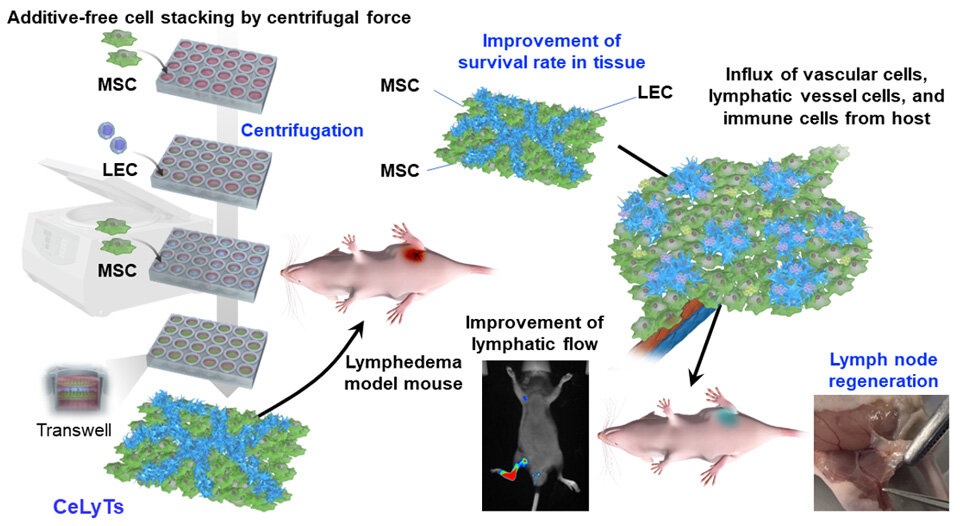Trivalent Influenza Vaccine Reduces Risk of Severe COVID-19, Especially Among High-Risk Groups, Finds Study
|
By HospiMedica International staff writers Posted on 09 Jul 2020 |

Illustration
A new study of COVID-19 patients has demonstrated that a recent trivalent flu vaccine reduces the odds of severe disease, ventilator support requirement, and death, indicating that such vaccines must be used widely to reduce the risk of severe COVID-19, especially among high-risk groups.
The study examined the outcomes in over 92,000 COVID-19 patients in Brazil, who had and had not been given flu vaccinations recently. The researchers found that the mortality in the non-immunized group rose from about 14% in the under-10 age group to 84% among those aged 90 years and above. However, the mortality was lower in all age groups in the immunized group, with the risk being 17% lower in the 10-19 years age group and 3% less in those aged 90 years and above. The study also looked at the age-influenza vaccine relationship and found that among vaccinated patients, there was a significant reduction by over a third in the odds of dying of COVID-19 at 35%, while the odds of dying of COVID-19 was lower by 18%.
Among patients with a positive RT-PCR-proved COVID-19 diagnosis, the association between lower mortality and flu vaccination remained significant. Those with obesity and lung disorders, as well as renal and kidney disorders had a higher risk of death, while those with asthma faced a lower risk. Additionally, patients who had received flu vaccination had 8% lower odds of requiring intensive care and about 20% fewer odds of needing respiratory support. The patients vaccinated in the current round were found to be protected but not those vaccinated earlier. Patients who had been vaccinated before developing symptoms of COVID-19 showed a 20% reduction in the odds of mortality, while there was a 27% reduction in the odds of death in those who had been vaccinated after the onset of symptoms.
The study demonstrates that while influenza vaccines do not increase the risk of adverse outcomes among COVID-19 patients, they do have a protective effect, possibly through several mechanisms. In their study published on the preprint server medRxiv, the researchers have suggested: “Given the high similarities of SARS-CoV-2 and influenza viruses with respect to viral structure, transmission, and pathogenic mechanisms, it seems plausible that both viruses are detected by similar or identical pattern recognition receptors. Their binding to viral RNA can then trigger suitable inflammatory and antiviral responses.”
The study concludes: “In the absence of a COVID-19 vaccine and without a well-established treatment to avert disease progression, induction of trained immunity exerting beneficial, off-target effects might be a fruitful avenue for improving COVID-19 outcomes. Governments should seriously consider promoting flu vaccination at this time in view of the many benefits since reducing the number of severe COVID-19 cases will help relieve the strain on the healthcare system and allow the sickest patients to receive adequate care.”
The study examined the outcomes in over 92,000 COVID-19 patients in Brazil, who had and had not been given flu vaccinations recently. The researchers found that the mortality in the non-immunized group rose from about 14% in the under-10 age group to 84% among those aged 90 years and above. However, the mortality was lower in all age groups in the immunized group, with the risk being 17% lower in the 10-19 years age group and 3% less in those aged 90 years and above. The study also looked at the age-influenza vaccine relationship and found that among vaccinated patients, there was a significant reduction by over a third in the odds of dying of COVID-19 at 35%, while the odds of dying of COVID-19 was lower by 18%.
Among patients with a positive RT-PCR-proved COVID-19 diagnosis, the association between lower mortality and flu vaccination remained significant. Those with obesity and lung disorders, as well as renal and kidney disorders had a higher risk of death, while those with asthma faced a lower risk. Additionally, patients who had received flu vaccination had 8% lower odds of requiring intensive care and about 20% fewer odds of needing respiratory support. The patients vaccinated in the current round were found to be protected but not those vaccinated earlier. Patients who had been vaccinated before developing symptoms of COVID-19 showed a 20% reduction in the odds of mortality, while there was a 27% reduction in the odds of death in those who had been vaccinated after the onset of symptoms.
The study demonstrates that while influenza vaccines do not increase the risk of adverse outcomes among COVID-19 patients, they do have a protective effect, possibly through several mechanisms. In their study published on the preprint server medRxiv, the researchers have suggested: “Given the high similarities of SARS-CoV-2 and influenza viruses with respect to viral structure, transmission, and pathogenic mechanisms, it seems plausible that both viruses are detected by similar or identical pattern recognition receptors. Their binding to viral RNA can then trigger suitable inflammatory and antiviral responses.”
The study concludes: “In the absence of a COVID-19 vaccine and without a well-established treatment to avert disease progression, induction of trained immunity exerting beneficial, off-target effects might be a fruitful avenue for improving COVID-19 outcomes. Governments should seriously consider promoting flu vaccination at this time in view of the many benefits since reducing the number of severe COVID-19 cases will help relieve the strain on the healthcare system and allow the sickest patients to receive adequate care.”
Latest COVID-19 News
- Low-Cost System Detects SARS-CoV-2 Virus in Hospital Air Using High-Tech Bubbles
- World's First Inhalable COVID-19 Vaccine Approved in China
- COVID-19 Vaccine Patch Fights SARS-CoV-2 Variants Better than Needles
- Blood Viscosity Testing Can Predict Risk of Death in Hospitalized COVID-19 Patients
- ‘Covid Computer’ Uses AI to Detect COVID-19 from Chest CT Scans
- MRI Lung-Imaging Technique Shows Cause of Long-COVID Symptoms
- Chest CT Scans of COVID-19 Patients Could Help Distinguish Between SARS-CoV-2 Variants
- Specialized MRI Detects Lung Abnormalities in Non-Hospitalized Long COVID Patients
- AI Algorithm Identifies Hospitalized Patients at Highest Risk of Dying From COVID-19
- Sweat Sensor Detects Key Biomarkers That Provide Early Warning of COVID-19 and Flu
- Study Assesses Impact of COVID-19 on Ventilation/Perfusion Scintigraphy
- CT Imaging Study Finds Vaccination Reduces Risk of COVID-19 Associated Pulmonary Embolism
- Third Day in Hospital a ‘Tipping Point’ in Severity of COVID-19 Pneumonia
- Longer Interval Between COVID-19 Vaccines Generates Up to Nine Times as Many Antibodies
- AI Model for Monitoring COVID-19 Predicts Mortality Within First 30 Days of Admission
- AI Predicts COVID Prognosis at Near-Expert Level Based Off CT Scans
Channels
Artificial Intelligence
view channelCritical Care
view channel
Intranasal Spray to Prevent Illnesses from Respiratory Viruses
Respiratory viruses such as influenza and COVID-19 hospitalize more than one million people in the U.S. each year, with many infections spreading through close contact in households, schools, and workplaces.... Read more
AI Risk Prediction Tool Improves Treatment of Cancer Patients after Heart Attack
Cancer patients who experience a heart attack face a uniquely dangerous combination of risks, including higher chances of death, bleeding, and repeat cardiac events. Because of this complexity, they have... Read moreSurgical Techniques
view channel
Surgical Innovation Cuts Ovarian Cancer Risk by 80%
Ovarian cancer remains the deadliest gynecological cancer, largely because there is no reliable screening test, and most cases are diagnosed at advanced stages. Thousands of patients die each year as treatment... Read more
New Imaging Combo Offers Hope for High-Risk Heart Patients
Patients with type 2 diabetes often develop complex, severe coronary artery disease involving multiple narrowed or blocked arteries, making complete revascularization difficult. Without detailed functional... Read morePatient Care
view channel
Revolutionary Automatic IV-Line Flushing Device to Enhance Infusion Care
More than 80% of in-hospital patients receive intravenous (IV) therapy. Every dose of IV medicine delivered in a small volume (<250 mL) infusion bag should be followed by subsequent flushing to ensure... Read more
VR Training Tool Combats Contamination of Portable Medical Equipment
Healthcare-associated infections (HAIs) impact one in every 31 patients, cause nearly 100,000 deaths each year, and cost USD 28.4 billion in direct medical expenses. Notably, up to 75% of these infections... Read more
Portable Biosensor Platform to Reduce Hospital-Acquired Infections
Approximately 4 million patients in the European Union acquire healthcare-associated infections (HAIs) or nosocomial infections each year, with around 37,000 deaths directly resulting from these infections,... Read moreFirst-Of-Its-Kind Portable Germicidal Light Technology Disinfects High-Touch Clinical Surfaces in Seconds
Reducing healthcare-acquired infections (HAIs) remains a pressing issue within global healthcare systems. In the United States alone, 1.7 million patients contract HAIs annually, leading to approximately... Read moreHealth IT
view channel
EMR-Based Tool Predicts Graft Failure After Kidney Transplant
Kidney transplantation offers patients with end-stage kidney disease longer survival and better quality of life than dialysis, yet graft failure remains a major challenge. Although a successful transplant... Read more
Printable Molecule-Selective Nanoparticles Enable Mass Production of Wearable Biosensors
The future of medicine is likely to focus on the personalization of healthcare—understanding exactly what an individual requires and delivering the appropriate combination of nutrients, metabolites, and... Read moreBusiness
view channel
Medtronic to Acquire Coronary Artery Medtech Company CathWorks
Medtronic plc (Galway, Ireland) has announced that it will exercise its option to acquire CathWorks (Kfar Saba, Israel), a privately held medical device company, which aims to transform how coronary artery... Read more
Medtronic and Mindray Expand Strategic Partnership to Ambulatory Surgery Centers in the U.S.
Mindray North America and Medtronic have expanded their strategic partnership to bring integrated patient monitoring solutions to ambulatory surgery centers across the United States. The collaboration... Read more
FDA Clearance Expands Robotic Options for Minimally Invasive Heart Surgery
Cardiovascular disease remains the world’s leading cause of death, with nearly 18 million fatalities each year, and more than two million patients undergo open-heart surgery annually, most involving sternotomy.... Read more








.jpg)









